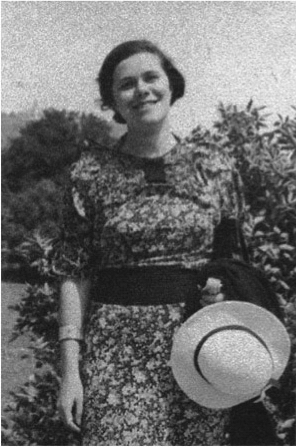
The institute is named after
Else Frenkel-Brunswik
Psychoanalyst Else Frenkel-Brunswik made a notable contribution to psychoanalytic social psychology through her pioneering work within the famous studies on the authoritarian personality.
Else Frenkel was born in Lviv (Ukraine) on 18 August 1908. She was the second of the three daughters of Abraham and Helene Frenkel. In the wake of anti-Semitic pogroms in 1914, the Jewish family moved to Vienna, where Else Frenkel grew up, began studying mathematics and physics after graduating from high school, and soon added a degree in psychology. She then worked as an assistant to Charlotte and Karl Bühler at the Institute of Psychology in the research area “Autobiographical Research.” During this time, she also completed further training as a psychoanalyst. With the onset of Nazi rule in Austria, Frenkel fled to the United States in 1938 and began to work at the University of California, Berkeley, as a senior lecturer at the Institute of Child Welfare and as a research psychologist and psychotherapist at Cowell Memorial Hospital. In the same year, she married Egon Brunswik, a psychologist who had also emigrated from Vienna.
THE DISCOVERY OF THE AUTHORITARIAN PERSONALITY
In the United States, Else Frenkel-Brunswik primarily researched modern anti-Semitism and was instrumental in the book series Studies in Prejudice, launched at Berkeley beginning in 1944. Within the series, she undertook studies and published the book The Authoritarian Personality alongside social philosopher Theodor W. Adorno, social psychologist Nevitt Sanford, and psychiatrist Daniel J. Levinson. Although these studies are a landmark of research and remain an important landmark for social research today, Else Frenkel-Brunswik’s significant contributions, particularly her qualitative research, have gone largely unnoticed.
Else Frenkel-Brunswik belonged to the first generation of women for whom a career at the university was possible, yet she was never appointed a professor position because of her gender. By naming the institute after her, EFBI is joining the tradition of prejudice research that she helped to establish, based on quantitative and qualitative approaches to society and a psychoanalytic understanding of social psychology.

